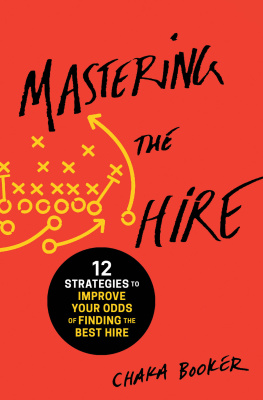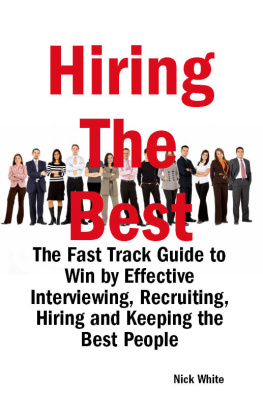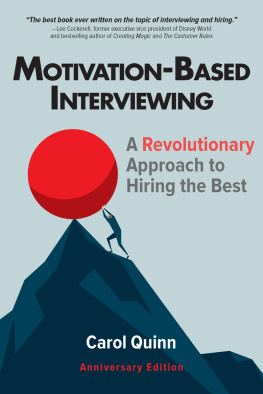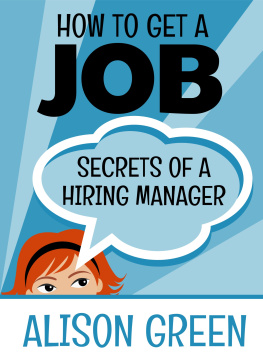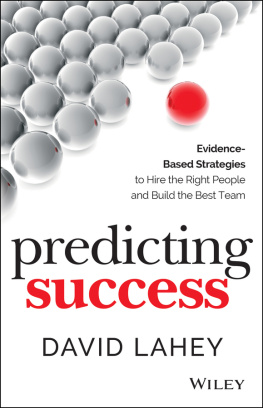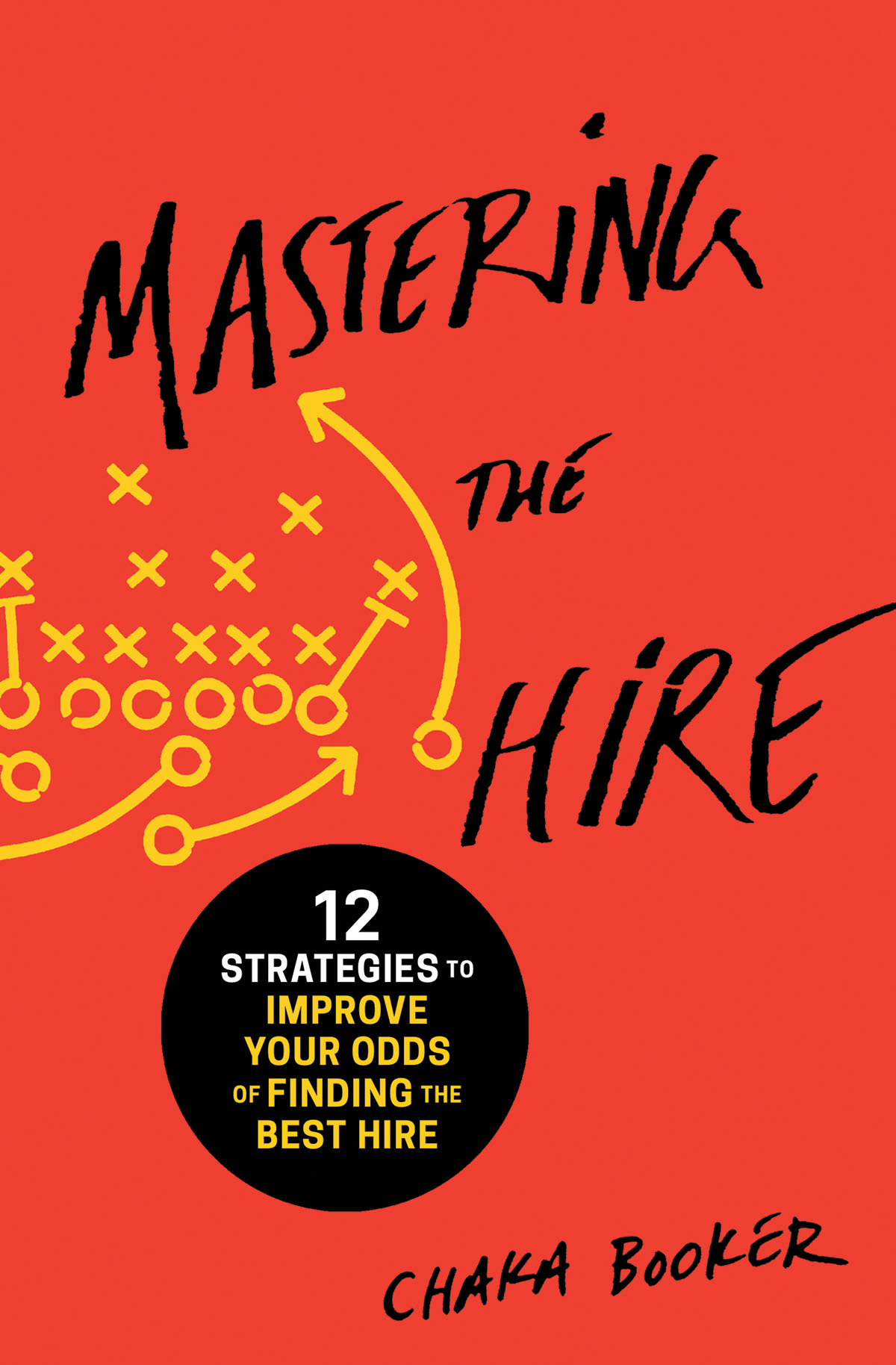2020 Chaka Booker
All rights reserved. No portion of this book may be reproduced, stored in a retrieval system, or transmitted in any form or by any meanselectronic, mechanical, photocopy, recording, scanning, or otherexcept for brief quotations in critical reviews or articles, without the prior written permission of the publisher.
Published by HarperCollins Leadership, an imprint of HarperCollins Focus LLC.
Book design by Maria Fernandez, Neuwirth & Associates.
ISBN 978-1-4002-1641-3 (eBook)
ISBN 978-1-4002-1640-6 (TP)
Epub Edition January 2020 9781400216413
Library of Congress Control Number: 2019956923
Printed in the United States of America
20 21 22 23 LSC 10 9 8 7 6 5 4 3 2 1
Information about External Hyperlinks in this ebook
Please note that the endnotes in this ebook may contain hyperlinks to external websites as part of bibliographic citations. These hyperlinks have not been activated by the publisher, who cannot verify the accuracy of these links beyond the date of publication
Ebook Instructions
In this ebook edition, please use your devices note-taking function to record your thoughts wherever you see the bracketed instructions [Your Notes]. Use your devices highlighting function to record your response whenever you are asked to checkmark, circle, underline, or otherwise indicate your answer(s).
for Oralia
for my parents, brothers, sister, and children
CONTENTS
Guide
I n my office, I keep a copy of Against the Gods: The Remarkable Story of Risk by Peter L. Bernstein. The book provides a historic account of the thinkers who studied risk and learned how to manage the odds. It documents how that ability has become a driver of success in the modern world. From the mathematical birthplace of risk in the Hindu-Arabic numbering system, to advances in probability theory during the 1700s, to recent research in behavioral economics, Bernstein makes a strong argument that effective decision makers are effective oddsmakers.
My earliest experiences with the odds were at the racetrack. I grew up in Detroit, raised by working-class immigrants. My mother was a dressmaker. My father was a house painter who eventually ran two five-and-dime stores. He occasionally bet on horses and I sometimes tagged along. Later, as a student at Michigan State University, I was making ends meet by selling garbage disposals door-to-door and working as a drill-press operator at Packard Motor. I decided to try my luck with the horses. I was good with numbers, but initially was barely breaking even. Then I started following the trainers, pestering them with questions. Soon my winnings began to outpace my losses.
Understanding the relationship between research and risk was an important early lesson. By the time I was twenty-three I had founded my first company, today known as KB Home. I bought my second company for $52 million and transformed it from a sleepy insurance firm into the retirement savings giant SunAmerica, which we sold for $18 billion. As the founder of two Fortune 500 companies, understanding the odds has been integral to my success time and again. The other key factor has been understanding talent.
When I first started hiring for KB Home, I conducted the interviews myself. I would fly in and out of cities searching for talented professionals willing to join a company they had never heard of in an industry that wasnt exactly glamorous. My approach to interviewing was straightforward. To this day, I focus on understanding how clearly a candidate thinks and how much knowledge they have about the work were doing. Determining if they have confidence, ambition, and drive continues to be a priority. I learned a lot about hiring from those early experiences. I learned resumes dont tell the full story. I learned hiring people who are different than me helps keep my viewpoints relevant. I learned when to trust my gut and take a risk on someone untried. I wasnt a perfect interviewer, but I learned to beat the odds.
A lot has changed in the world since I first started building companies. But talent still matters. An organization is only as strong as its people. Identifying those people takes more than good fortune. To consistently make the right hiring decisions, you must understand how to influence the probability of success. The book in your hands captures that relationship and aims it at interviewing. It is an incredible resource for anyone facing the most important business decision you can make: Do I hire this person?
The author, Chaka Booker, knows a thing or two about beating the odds. He grew up in Los Angeles, also from humble beginnings. His father was a Marine Corps veteran. His mother was a teacher. Austerity and discipline ruled their home. He went to public school, wore secondhand clothes, and rode the bus everywhere. When he was in the tenth grade, his parents separated, and through a set of difficult circumstances, he ended up living on his own.
With a level of determination rare at any age, Chaka supported himself through high school by taking every job you could imaginegrocery bagger, busboy, cashier, yard hand. He even sold insurance by phone. Los Angeles can be tough place for a teenager on his own and the odds were certainly stacked against him. But he graduated from high school, set his sights higher, and kept beating the odds. He worked his way through college at UCLA, where he double majored in psychology and economics. He started a small business and followed that with an MBA from Stanford.
I met Chaka when we hired him fresh out of business school. He was smart, entrepreneurial, and had life experiences that made him think differently than others. Anyone who knows me knows I like unconventional thinkers. He fit the bill for what we needed in an organization we had recently created, The Broad Center.
My business career has allowed me to dedicate myself full-time to philanthropy. The Eli and Edythe Broad Foundation has given more than $600 million to support public education. We created the Broad Institute with MIT and Harvard to focus on genomics research to cure major diseases. The Broad Museum houses two world-class art collections that we built and has free general admission.
The Broad Center was spun out from the foundation in response to challenges we saw in the social sector. Several years of grant-making had taught us that social sector organizations faced management challenges not so different from those in the private sector. Many of the organizations were saddled with operational inefficiencies, antiquated systems, or both. On one end of the spectrum were immense enterprises like the NYC Department of Education, with a $25 billion budget and 135,000 employees. On the other end were smaller organizations operating on a shoestring. In high demand at all points of the spectrum were talented people with skills in strategy, operations, finance, human resources, and management.
The Broad Center was created to meet that demand. The center operates highly selective leadership programs dedicated to recruiting and developing professionals across the country and helping them take on management positions in public education. The complexity of leadership needed to manage public entities that address the needs of children in every socioeconomic status, geographic terrain, and family structure is enormous. Historical and structural inequities are deeply entrenched, and students are the ones who pay the price. Passion helps, but fighting the status quo is not for the faint of the heart. It requires a type of talent that is hard to find, and harder yet to assess. It cant be left to chance.

